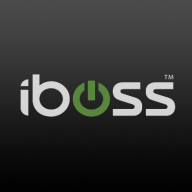


Cisco Umbrella and Check Point Harmony SASE are competitors in the network security industry. Given the data, Check Point Harmony SASE seems to have the upper hand with its full-stack security approach and strong integration capabilities.
Features: Cisco Umbrella provides comprehensive DNS-level security, customizable web filtering, console management, and integration with Cisco solutions. It allows easy deployment across different platforms. Check Point Harmony SASE includes Zero Trust Network Access, Secure Web Gateway, centralized management, traffic optimization, real-time threat intelligence, and granular policy control. It offers a full-stack security approach with versatile integration, making it a robust solution.
Room for Improvement: Cisco Umbrella lacks some integrations and advanced analytics, faces challenges with country-specific DNS resolutions, and needs more granular control and better ecosystem integration. Check Point Harmony SASE has room for improvement in setup complexity and mobile client functionality, with a need for more intuitive policy configurations and integration with third-party identity providers.
Ease of Deployment and Customer Service: Cisco Umbrella is known for its easy public cloud deployment across environments and excellent customer support. Check Point Harmony SASE offers flexibility in cloud and hybrid deployments but could improve response times during complex configurations, though users find the deployment process straightforward.
Pricing and ROI: Cisco Umbrella is perceived as expensive with less flexible pricing, but users report a good ROI through enhanced security and reduced overhead. Check Point Harmony SASE is competitively priced with variable options, potentially challenging for small organizations due to minimum licenses. Both solutions deliver clear ROI in minimizing risks, with Harmony SASE offering comprehensive coverage.
| Product | Market Share (%) |
|---|---|
| Cisco Umbrella | 13.7% |
| iboss | 2.4% |
| Check Point Harmony SASE (formerly Perimeter 81) | 3.7% |
| Other | 80.2% |


| Company Size | Count |
|---|---|
| Small Business | 6 |
| Midsize Enterprise | 6 |
| Large Enterprise | 5 |
| Company Size | Count |
|---|---|
| Small Business | 53 |
| Midsize Enterprise | 20 |
| Large Enterprise | 13 |
| Company Size | Count |
|---|---|
| Small Business | 50 |
| Midsize Enterprise | 30 |
| Large Enterprise | 51 |
Iboss offers a comprehensive cloud-based security platform valued for its scalability and autonomous features, ensuring robust security with easy deployment and management capabilities.
Renowned for its robust security architecture, Iboss integrates seamlessly within diverse networks, delivering efficient granular filtering and advanced content categorization. Its single pane of glass console provides ease of management, allowing rapid scalability suitable for rapidly deploying environments. Operates in BYOD setups due to inline filtering without device installation. Integration with cloud-based applications enhances user control, and features like SASE, SSL inspection, and ChatGPT risk protection stand as highlights. Despite its strengths, users have pointed out areas for enhancement like direct navigation in reports, SSL decryption, and better cloud integration while having room to improve data loss prevention.
What are the most important features of Iboss?The usage of Iboss spans educational institutions, specifically K-12, to enforce internet policies, protect data, and support remote work environments. It provides web filtering and security frameworks to ensure safe browsing. Its platform-as-a-service model offers flexibility for both cloud-based and on-premises requirements, integrating seamlessly to deliver enhanced security features suitable for various deployment needs including zero trust, CASB, and network security for work-from-home setups.
Check Point Harmony SASE, formerly Perimeter 81, offers robust security features like split tunneling, MFA, and Zero Trust Network Access focused on secure remote access and optimized connectivity for remote teams.
Check Point Harmony SASE delivers advanced security through a user-friendly interface, efficient VPN connections, and a centralized management console. It enhances security with real-time threat intelligence from ThreatCloud and traffic management via built-in optimization. Firewall as a Service and Secure Web Gateway safeguard against unauthorized access and phishing. While users seek enhanced networking customizations and better integration with identity providers, there's an emphasis on improving reporting, real-time analytics, and policy management. Requests also include a Chrome extension, traffic balancing, and simplified configuration to address some resource-intensive aspects.
What are the key features of Check Point Harmony SASE?
How can organizations benefit from using Check Point Harmony SASE?
Check Point Harmony SASE is used across industries for secure remote access and connectivity, protecting sensitive data, and managing access to corporate resources. It is ideal for those with hybrid cloud models and requires comprehensive security measures combined with existing IT infrastructures to meet specific industry demands.
Cisco Umbrella provides fast-deploying DNS-layer security with powerful threat protection capabilities. Trusted by over 30,000 entities, it ranks highly in DNS security and effectively supports secure remote work environments.
Cisco Umbrella offers comprehensive DNS security, web filtering, and ease of use, enhancing network security through robust threat protection and malware prevention. It processes over 600 billion requests daily, making it a leader in its field. The seamless integration with existing infrastructures and cloud-based nature makes it suitable for remote and distributed work environments, ensuring consistent security throughout. Management is streamlined with a single-pane interface that simplifies administration, while in-depth reporting capabilities provide valuable insights for continuous monitoring.
What are the key features of Cisco Umbrella?Cisco Umbrella is widely adopted in industries requiring advanced DNS-level security to counteract malware, phishing, and cyber threats. Its ability to monitor and protect remote and roaming employees makes it an attractive option for sectors highly dependent on cloud services. By managing DNS queries and blocking harmful sites, Cisco Umbrella enhances cybersecurity across networks, providing an added layer of protection for businesses worldwide.
We monitor all Secure Web Gateways (SWG) reviews to prevent fraudulent reviews and keep review quality high. We do not post reviews by company employees or direct competitors. We validate each review for authenticity via cross-reference with LinkedIn, and personal follow-up with the reviewer when necessary.